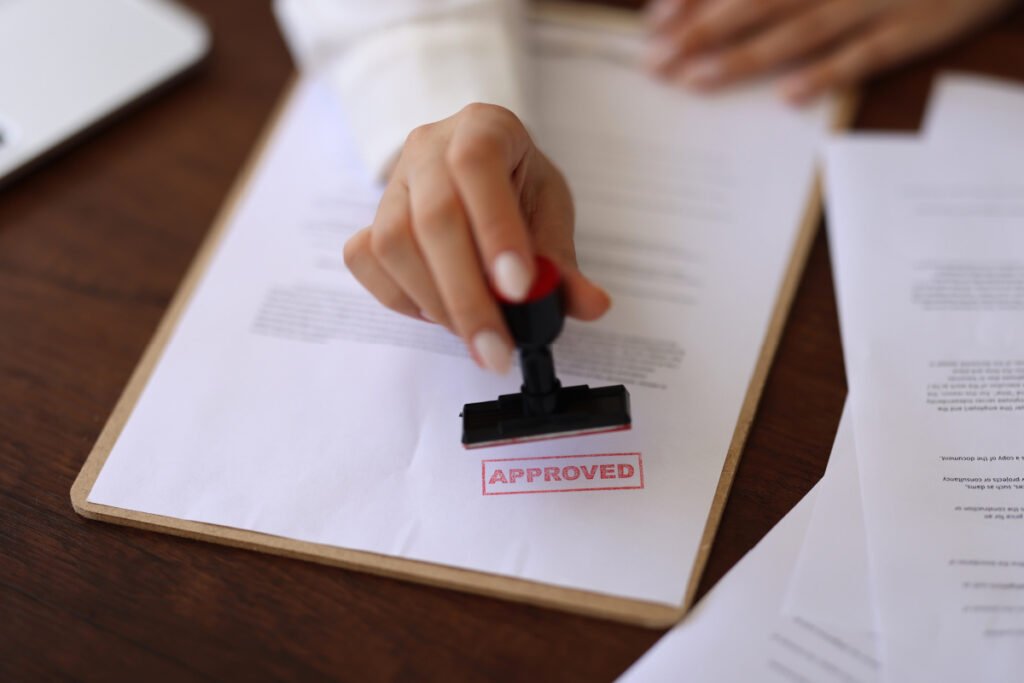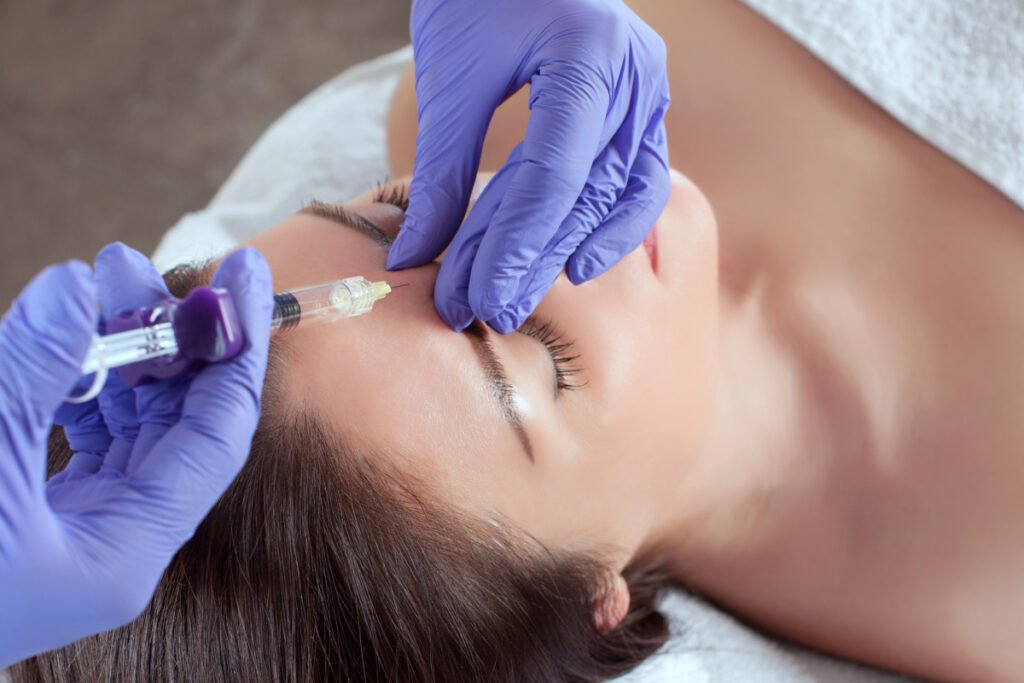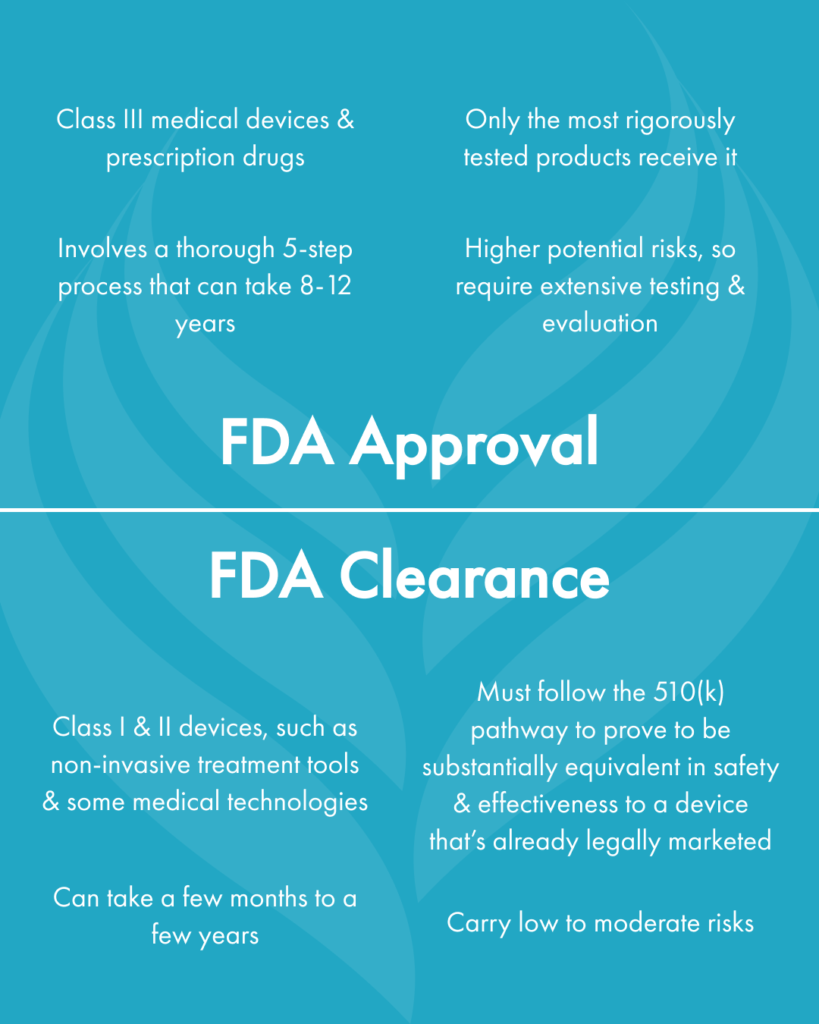What’s the Difference Between FDA Approval and FDA Clearance in Cosmetic Surgery?
| ABCS
The U.S. Food and Drug Administration (FDA) evaluates the safety and efficacy of the products and devices used in cosmetic procedures, ensuring they meet rigorous standards before they are made available to the public. But when it comes to terms like “FDA-approved” and “FDA-cleared,” many patients are left wondering: What do these labels really mean, and how do they impact my safety and results? Here, the American Board of Cosmetic Surgery (ABCS) explains the differences between the labels.
FDA Approval vs. FDA Clearance
The distinction between FDA approval and FDA clearance is significant, especially in the context of cosmetic surgery. These terms refer to different levels of regulatory scrutiny to reflect the level of safety control needed. Products are sorted by Class I, II, or III, with Class I requiring the least amount of regulation and Class III requiring the strictest regulations.

FDA Approval
FDA approval is reserved for Class III medical devices and prescription drugs. These products have the potential to pose more considerable risks to a patient and thus require extensive testing and evaluation to prove their safety and efficacy. This category includes items like breast implants and Botox®-type injectables.
FDA-approved products undergo more rigorous testing compared to FDA-cleared devices. Approved products have been subjected to extensive research, including clinical trials, while cleared devices are evaluated based on their similarity to existing products.
The process of gaining FDA approval involves a 5-step process, beginning with preclinical research and followed by human clinical trials. Manufacturers must provide comprehensive data demonstrating that the product performs as intended, with benefits outweighing any potential risks. This thorough evaluation is a very lengthy process and often takes 8-12 years. Only the most rigorously tested products receive FDA approval.
FDA Clearance
On the other hand, FDA clearance applies to Class I and II devices, which are considered to carry a low to moderate risk, such as non-invasive treatment tools and certain medical technologies used in cosmetic surgery. You may see several FDA-cleared devices offered by a cosmetic surgeon or at medspas such as microneedling devices, some laser treatments, and a few non-surgical skin tightening tools.
FDA-cleared items gain a quicker entry into the market but still require adherence to certain safety standards.
Manufacturers seeking FDA clearance follow the 510(k) pathway and must prove that their new product is substantially equivalent to a device that is already legally marketed. This process is less stringent than FDA approval because it focuses on proving that the new device is at least as safe and effective as its predecessor. It is also much faster and takes a few months to only a few years to obtain, allowing manufacturers to offer new products to the public sooner.

What does this mean for your cosmetic procedure?
Depending on the procedure you choose, your cosmetic surgeon may use products or devices that require FDA approval or FDA clearance. It is paramount that you verify that anything used during your procedure has the proper regulatory status. Unfortunately, counterfeit items can find their way into less reputable cosmetic practices or medspas and have the potential to cause a range of issues, from underwhelming results to serious health consequences.
Your provider should be transparent about the regulatory status of anything they use at their practice; you can confirm the information using the FDA’s database.
Find a cosmetic surgeon you can trust
Your path to safe, effective, and beautiful results begins with an experienced cosmetic surgeon who prioritizes your well-being. Choosing an ABCS board certified cosmetic surgeon with expertise in the latest FDA-approved and FDA-cleared technologies helps to ensure that your procedure will be performed using the highest standards of care. If you have questions or concerns about the products and devices involved in your treatment, don’t hesitate to ask your surgeon. Your safety and satisfaction should come first, no matter the procedure.